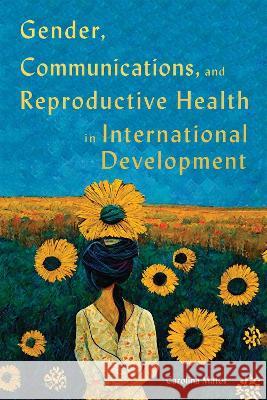Gender, Communications, and Reproductive Health in International Development » książka
Gender, Communications, and Reproductive Health in International Development
ISBN-13: 9780228017554 / Angielski / Miękka / 2023 / 352 str.
Gender, Communications, and Reproductive Health in International Development
ISBN-13: 9780228017554 / Angielski / Miękka / 2023 / 352 str.
(netto: 116,57 VAT: 5%)
Najniższa cena z 30 dni: 120,90
ok. 30 dni roboczych.
Darmowa dostawa!
To this day, women globally are subjected to forms of control over their bodies, and their ability to exercise their reproductive rights in particular is still constrained. Amid a rise of challenges to the advancement of women’s rights, including the recent overturning of Roe v. Wade in the United States, sexual and reproductive health rights are at the forefront of conversations about the advancement of gender equality. To determine how communications are used strategically to shape policy, Carolina Matos explores fifty-two feminist and health NGOs from across the world and how they are improving discourse on sexuality and reproductive health in the public sphere. She investigates how these organizations are making use of communications amid various contemporary challenges, including the proliferation of misinformation about women’s rights and health in the public sphere due to the actions of oppositional far-right nationalist groups. Through original in-depth interviews within the NGOs and empirical research of the institutions’ online presences, Matos unpacks the complexities of the relationship between women’s health, communications, and development, contributing to the fields of development, health communications, and gender studies, and advancing the debate on the role of feminist NGOs in advocating for women’s rights. With a postcolonial critique of the role of NGOs in development, Matos illuminates the strategic use of communications in the mediation and advocacy of gender equality and reproductive health.











